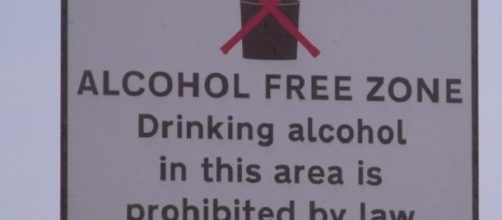With England contemplating a similar change to their drink-driving limits to bring them in line with Scotland's more strict controls, those considering such a change will have been slightly concerned by the findings detailed in the latest Bank of Scotland report published this week. The reduction to the legal alcohol limit seems to be being adhered to in the main, but as a by-product economists are suggesting that the private sector's financial growth is being impaired. Although there are additional factors having an impact on the country's economy at present, the "poor month" experienced was at least partly attributable to the new law that was introduced last December according to Donald MacRae, the chief economist for the bank.
Mr MacRae flagged the impact that the change to the law was having on people's drinking patterns, making them more wary of falling foul of the tighter limits now being adhered to when considering whether to imbibe alcohol or not. Although he was able to attribute the impact of the falling euro on exporters in the manufacturing sector, Mr Macrae was adamant that the hospitality sector was experiencing a change in spending patterns "resulting from the lowered alcohol limit while driving."
When the new law was brought in during December in Scotland, to reduce the allowable alcohol limit for drivers in the country down to just 50mg per 100ml of blood (it had previously been set at 80mg), there had been some concern about the potential for confusion created by the different limits south of the border compared to those actually in Scotland.
A driver could have partaken in a drink containing alcohol in England and still been legal to drive, but then once they had crossed over the border they could potentially be caught out. That in itself was thought likely to have had an impact (although potentially relatively limited) on people's spending patterns and decision as to whether to cross into Scotland or not for potential visitors.
However, it seems that there has been a more widespread impact than that, with many drivers heeding the advice that avoiding alcohol completely is the only way to be certain to stay below the limit. Not just that, but driving the morning after drinking alcohol (and the potential for the alcohol still being in the bloodstream) has also clearly been on people's minds and many have adjusted their drinking habits accordingly.
The hospitality sector was surveyed back in February of this year, with the results pointing to a fall by as much as 60% in bar sales since the new law had been brought in. Some people within the hospitality business have likened the harsher limits to prohibition in America, making many people afraid to partake of alcohol at all in their normal lives. There could of course be health benefits as a result of Scottish people reducing their alcohol intake and the potential for an increase in soft drinks' sales in the longer term.
A spokesman for the Scottish Licensed Trade Association, Paul Waterson, suggested that (for drivers) drinking at lunchtime or after work on the way home was being avoided by many.
He also believed that less families were visiting hostelries on Sunday afternoons to have food as a result. His concern extended to saying that it could prove to be "the last nail in the coffin for independent operators," with the impact being far more widespread than the smoking ban that came in during 2006.

